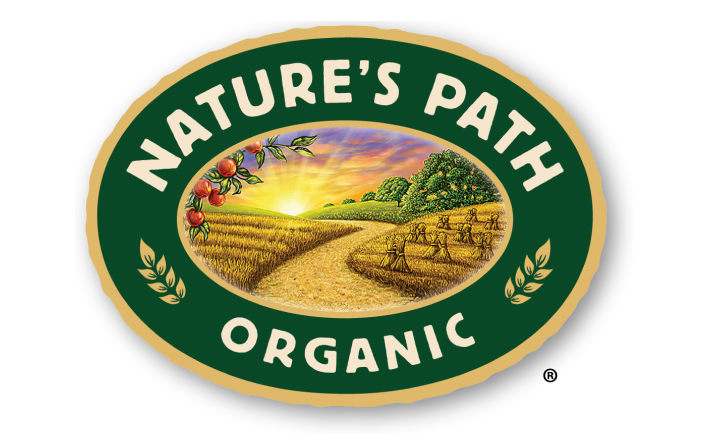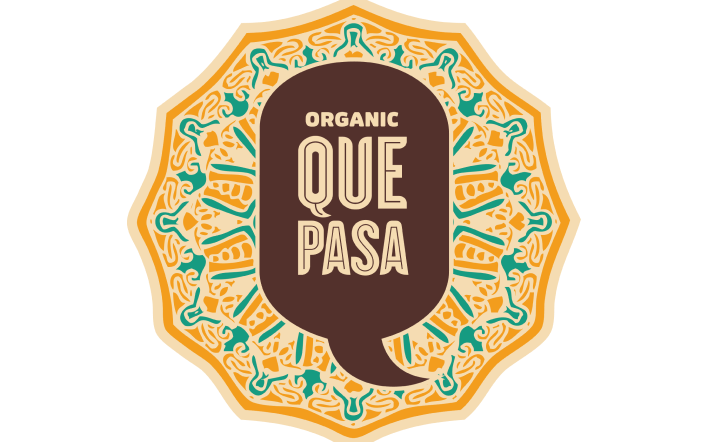
Harnessing Organic Farming to Tackle Climate Change
When we think about the culprits behind climate change, we often picture smokestacks, car exhaust, and deforestation. But one of the biggest contributors lies in a less obvious place: the food we eat and how it’s grown. Agriculture accounts for approximately 17% of global greenhouse gas emissions, according to the United Nations Food and Agriculture Organization (FAO), with industrial farming practices being a major driver.1
The good news? Agriculture isn’t just part of the problem; it can also be a powerful solution. Nature’s Path Organic Foods and Center for Food Safety believe that organic farming holds the key to addressing some of the biggest challenges of our time, from climate change to food security. We’re partnering together to elevate the power of organic farming and amplify visionary legislation within the Farm Bill like the Agriculture Resilience Act, which offers a pathway to a healthier planet and a more sustainable food system.
Act to ensure critical support for organic faming in the Farm Bill today!
Here is why the Agriculture Resilience Act can, if passed, make a real difference in transforming our food system and combating climate change:
Industrial Agriculture: A Climate Crisis Driver
Industrial agriculture—the dominant model of farming today—relies on practices that deplete natural resources and contribute heavily to climate change. Here are the primary ways it harms the environment:
1. Greenhouse Gas Emissions
Industrial farming generates significant greenhouse gases. Livestock production by industrial-sized factory farms, or Concentrated Animal Feeding Operations (CAFOs), alone accounts for about 14.5% of global emissions, with methane from cattle and nitrous oxide from poorly managed manure and synthetic fertilizers being key culprits.2
Meanwhile, large-scale monocropping, which prioritizes single crops like corn and soy, contributes to soil degradation and the release of stored carbon into the atmosphere.
2. Deforestation and Land Use
Industrial farming often expands at the expense of forests, which are critical carbon sinks. Each year, approximately 10 million hectares of forest are cleared globally, much of it for agricultural use. This not only releases carbon, but also reduces the planet’s capacity to absorb CO2.3
3. Overuse of Chemical Inputs
Synthetic fertilizers and pesticides—cornerstones of industrial farming—are energy-intensive to produce and apply. They also release nitrous oxide, a greenhouse gas about 300 times more potent than CO2.4 Runoff from these chemicals pollutes waterways, causing dead zones in oceans and harming ecosystems.
4. Soil Degradation
Industrial farming methods strip the soil of its organic matter, reducing its ability to retain carbon. Globally, soil erosion releases up to 1.5 billion tons of CO2 annually.5 This not only accelerates climate change but also undermines long-term food security.
Organic Agriculture: A Climate Solution
Organic farming represents a transformative alternative to industrial agriculture. By working with nature rather than against it, organic practices can help mitigate climate change while fostering healthier ecosystems. Here’s how:
1. Organic Increases Carbon Sequestration
Organic farming prioritizes soil health through practices like crop rotation, cover cropping, and composting. These methods increase soil organic matter, enabling soils to act as carbon sinks. Studies have shown that organic farms can sequester up to 25% more carbon than conventional industrial farms.6
2. Organic Contributes to Reduced Emissions
Organic agriculture avoids synthetic fertilizers and pesticides, drastically reducing nitrous oxide emissions by up to 40%.7 It also emphasizes diversified farming systems with careful nutrient management, which can lower methane emissions by integrating crops and livestock in more sustainable ways.
3. Organic Protects Biodiversity and Resilience
By fostering biodiversity both above and below ground, organic farming creates more resilient ecosystems. This not only helps farms withstand extreme weather, but also supports pollinators, natural pest control, and water conservation. Organic increases the microbial diversity of soil by up to 40%,8 and creates a safer habitat for human, animal, and insect life.
4. Organic Promotes Energy Efficiency
Organic systems use up to 45% less energy than conventional systems per unit of crop produced.9 This is largely because they eliminate the energy-intensive processes associated with synthetic inputs.
What now? The Agriculture Resilience Act: A Policy for Change
We need to advocate together for legislative policy that invests in the bright food future we all want. The Agriculture Resilience Act, introduced as part of the draft U.S. Farm Bill currently under consideration, is a groundbreaking piece of legislation that recognizes the dual role of agriculture in climate change and needs our support to get passed. By leveraging organic farming as a key strategy, it lays out a roadmap for transforming agriculture from a climate problem to a climate solution. Here are the key provisions:
1. Achieving Net-Zero Emissions by 2040
The act calls on the USDA to finalize and implement a plan to achieve net-zero greenhouse gas emissions from agriculture by 2040. This ambitious goal includes expanding support for practices that sequester carbon and reduce emissions, with organic farming front and center.
2. Expanding Technical Assistance
Transitioning to organic practices can be daunting for farmers. The Agriculture Resilience Act increases funding for much needed technical assistance programs that help farmers adopt cover cropping, composting, and other climate-smart, organic techniques.
3. Boosting Research and Education
The act prioritizes research into organic and regenerative farming methods. It also supports education initiatives to train new generations of farmers in climate-resilient, organic practices.
4. Supporting Renewable Energy
By promoting renewable energy solutions for rural areas, the act helps reduce agriculture’s reliance on fossil fuels. Solar panels on farms and biogas systems for manure management are just a few examples of how this can work.
5. Reducing Food Waste
Food waste is a major contributor to climate change, responsible for about 8-10% of global emissions.10 The act provides grants to schools and communities to reduce food waste, keeping it out of landfills and turning it into compost to enrich soils.
Why It Matters
The stakes couldn’t be higher. Climate change threatens global food security, with rising temperatures and unpredictable weather making it harder for farmers to grow our food. At the same time, the way we farm today is accelerating the problem. Organic agriculture offers a proven pathway to a sustainable food future, but farmers need the right resources and support to make the transition.
The Agriculture Resilience Act, as part of the Farm Bill, is a bold step toward aligning U.S. agriculture with climate goals. By investing in organic farming, we can empower farmers to lead the charge against climate change while ensuring a healthier, more equitable food system for future generations.
Join the Movement - Take Action Today!
Raise your voice. Share this message. And urge lawmakers to pass the Agriculture Resilience Act as part of the Farm Bill. Together, we can create a food system that nurtures the planet and the people & animals who call it home. Our pre-written letter template makes it easy to express your support for this important cause.
Click this link and act now!

About Center for Food Safety:
As a leader in the food movement for over 25 years, Center for Food Safety (CFS) has used groundbreaking legal, policy, corporate, public education, and grassroots campaigns to protect our food, our farms, and our environment. We believe in the power of organic and sustainable farming and eating and are proud to stand with like-minded organizations and consumers to create a better food future. Learn more here: https://www.centerforfoodsafety.org/

About Nature's Path Organic Foods:
Nature's Path Organic Foods is North America's largest independent organic breakfast and snack food company and produces USDA and Canadian Certified Organic and Non-GMO Project Verified breakfast and snack foods sold in grocery and natural food stores in over 50 countries around the world. Committed to the triple bottom line— socially responsible, environmentally sustainable and financially viable, Nature's Path works diligently to support communities and champion the cause of people and planet. Brands include Nature's Path®, Love Crunch®, Que Pasa®, EnviroKidz®, Anita's Organic Mills® and Love Child Organics®. Founded in 1985, Nature's Path is headquartered in Richmond, British Columbia and employs hundreds of valued team members at its four facilities in Canada and the United States.
Sources:
1 Emissions due to Agriculture: Global, Regional and Country Trends 2000–2018 | UN FAO.
2 Livestock solutions for climate change | UN FAO.
3 State of the World’s Forests 2020 | UN FAO.
5 Carbon Dioxide: Earth's Hottest Topic Is Just Warming Up | NOAA Climate.gov
6 New Study Shows Organic Farming Traps Carbon in Soil to Combat Climate Change | Civil Eats
9 FARMING SYSTEMS TRIALS: Celebrating 30 years | Rodale Institute.
Other Sources:
Rodale Institute, Farming System Trial: 40-year Report. Accessed from.
Organic Farming Research Foundation. South Health & Organic Farming Report: Organic Practices for Climate Mitigation, Adaptation, and Carbon Sequestration. Accessed from.
Nature’s Path. "Advocating for the U.S. Farm Bill: Supporting Organic." Nature's Path Blogs, Accessed from.
Organic Trade Association. The Science Behind Organic: Resource Guide. November 2022. Accessed from.
National Sustainable Agriculture Coalition. "The Agriculture Resilience Act in 2023." Sustainable Agriculture Blog, Accessed from.







